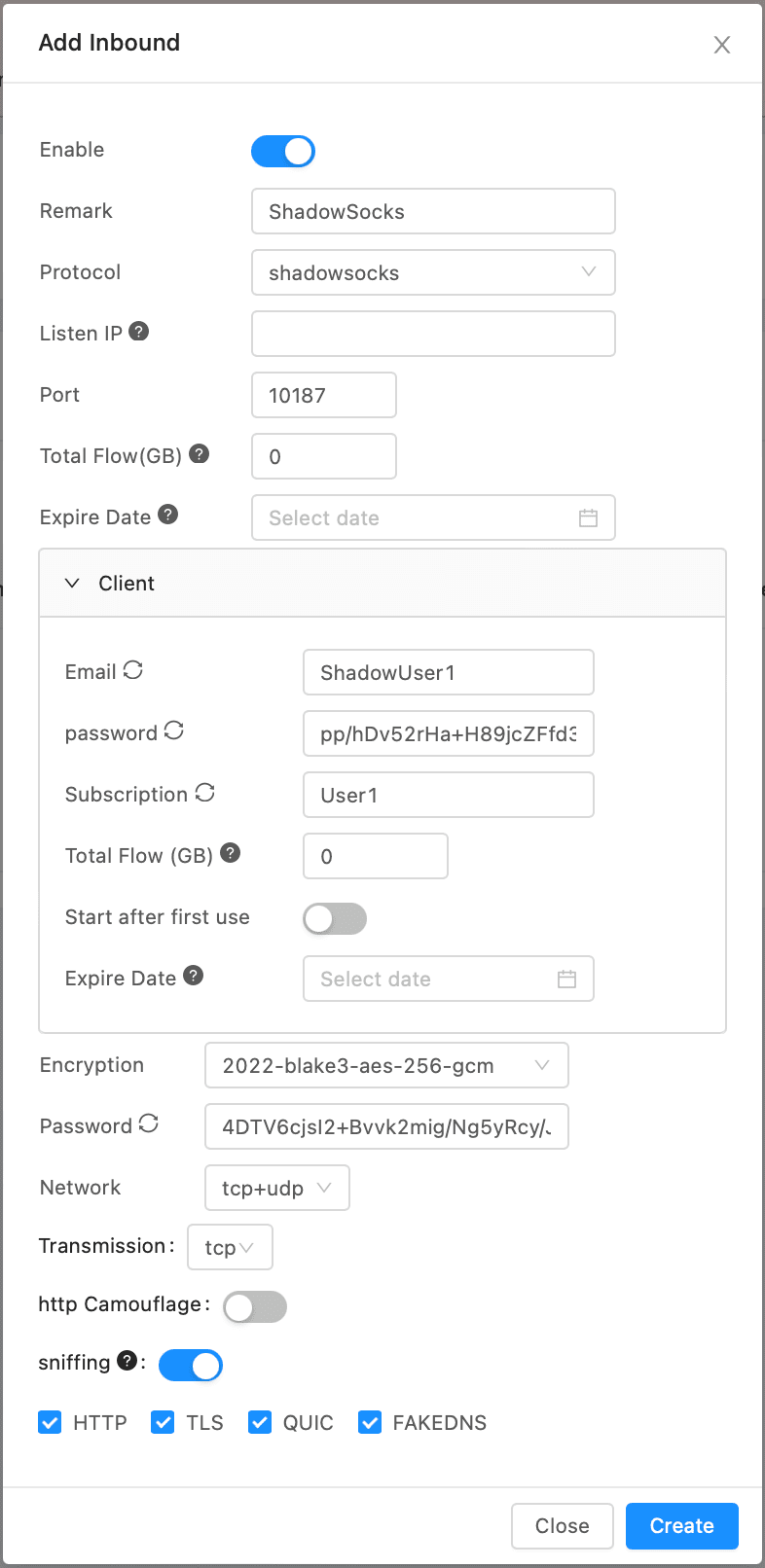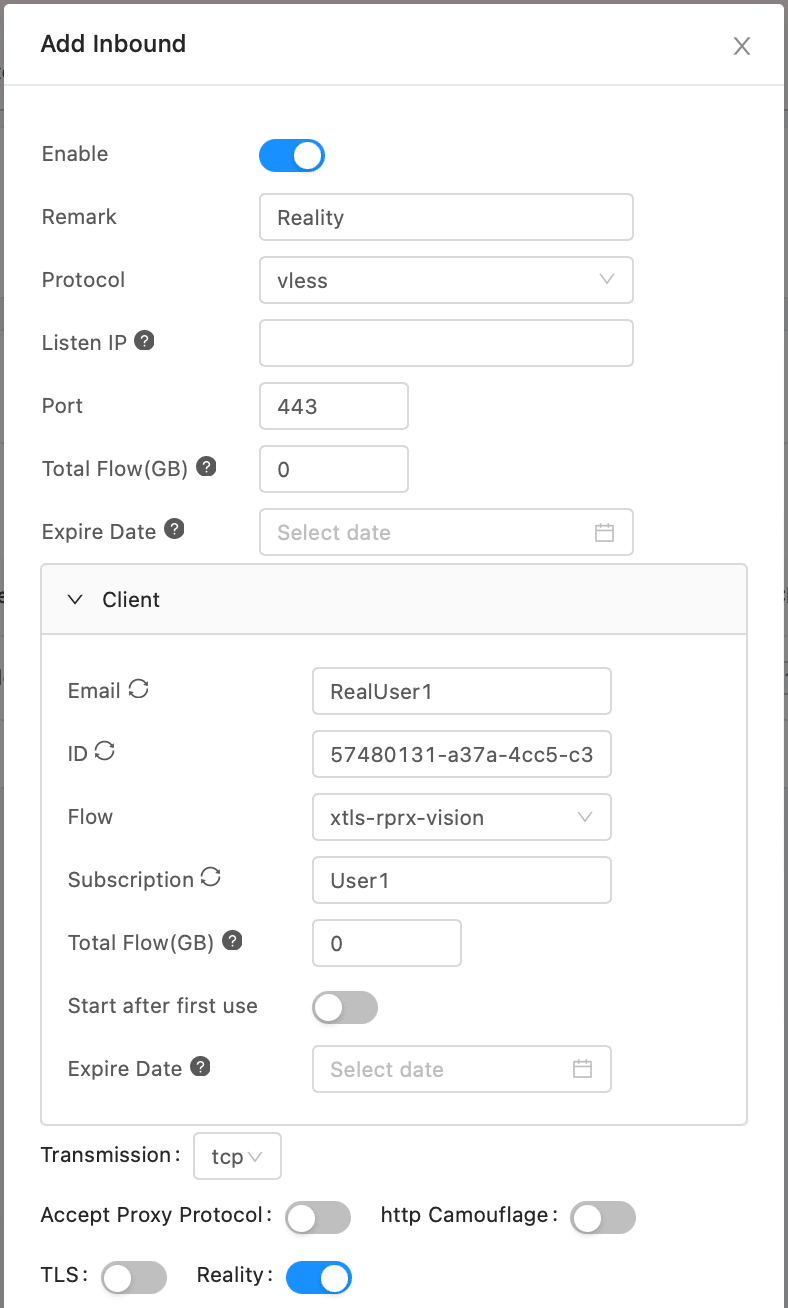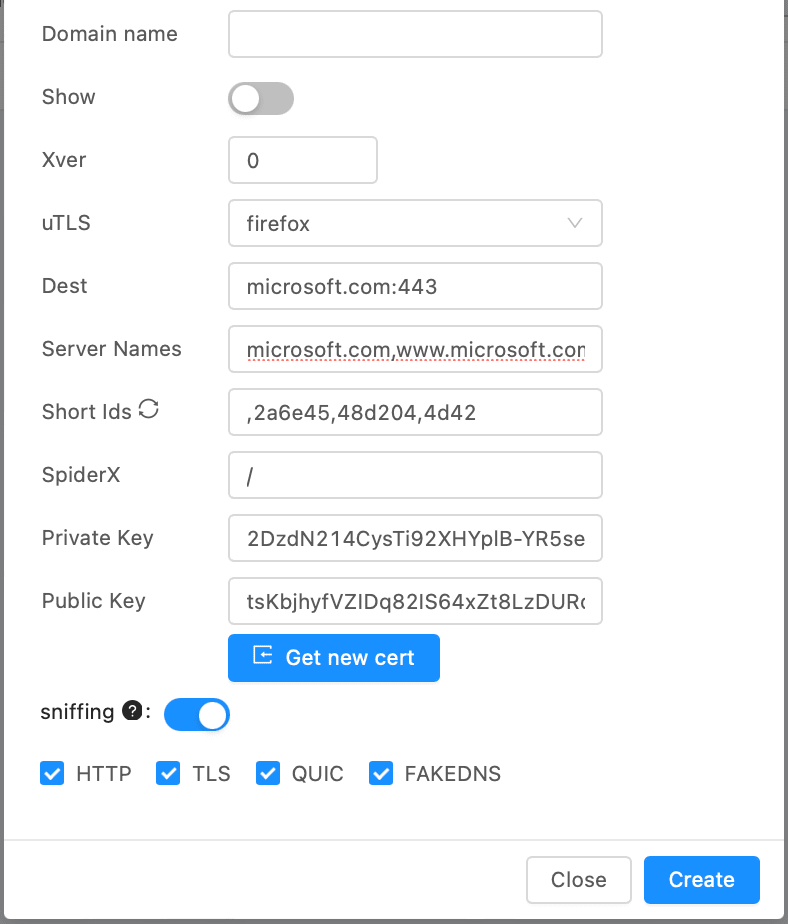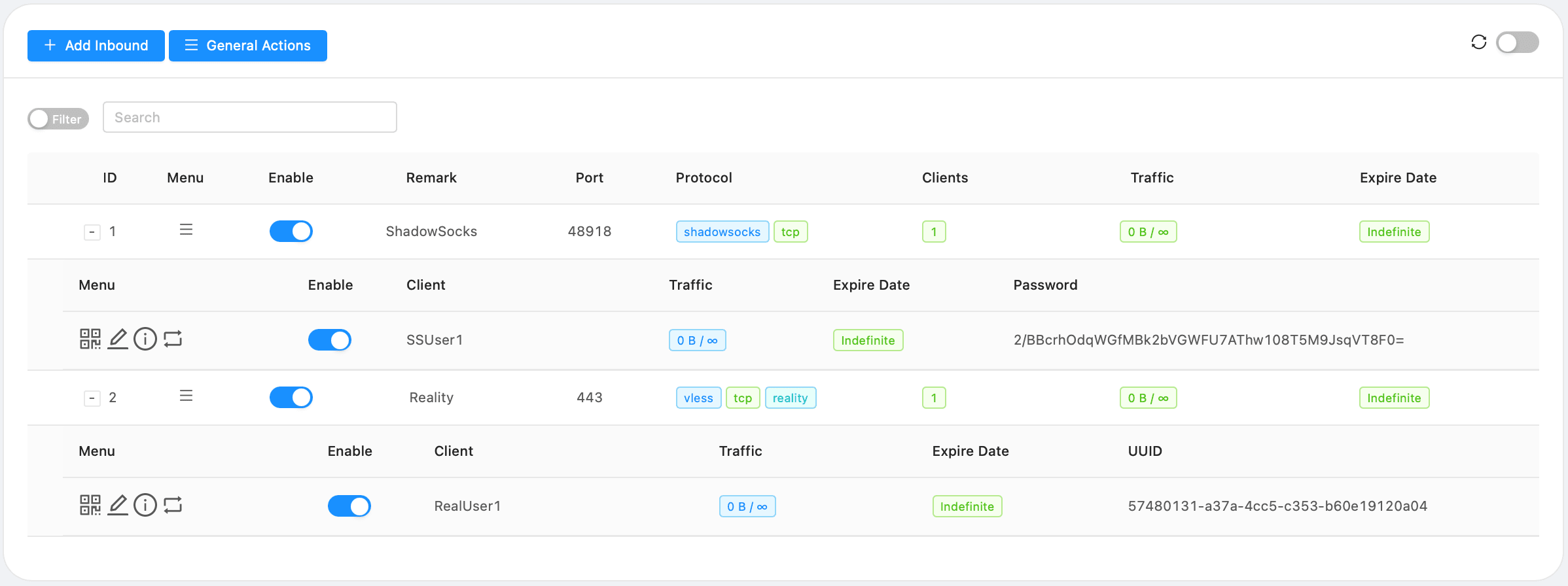Fast shadowsocks tunnel proxy that helps you bypass firewalls. Xray-cloud supports any x86 servers be it a VPS, Cloud provider (AWS, GoogleC, Azure), a dedicated server, or a home computer. It also supports any ARM-based devices such as Raspberry Pi, Banana Pi, etc.
# Installation!Beaware!: Some protocols described here are prohibited in PRC. Don't use this if you are in PRC. This is for your educational purposes only.
-
Install Ansible and Git:
sudo apt-get install -y python3-pip git rsync sudo apt install ansible
-
Clone this repository:
git clone https://github.com/d3vilh/xray-cloud
-
Then enter the repository directory:
cd xray-cloud -
Install requirements:
ansible-galaxy collection install -r requirements.yml
If you see
ansible-galaxy: command not found, you have to relogin and then try again. -
Run the following command to add the
dockergroup if it doesn't exist and add user to thedockergroup:If you have docker installed for current user, you can skip this step.
sudo groupadd docker sudo usermod -aG docker $USER -
Double check that
ansible_useris correct forinventory.yml. Need to run installtion on the remote server - follow the recomendations in config file. -
Run installation playbook:
ansible-playbook main.yml
-
You have to allow following ports for Inbound traffic in Security Group configuration:
443,54321(temporary for UI),2098(if you'll be using subscriptions). -
After installation, you can access the Xray Web UI at
http://<your-server-ip>:54321and login with the default usernameadminand passwordadmin. You must change the password in the Web UI.
- UI access port
http://localhost:54321, (changelocalhostto your server host ip/name) - Default password is
admin/admin, which must be changed via web interface on first login (Pannel Settings>User Settings). - External ports used by container:
443:tcp,54321:tcp(by default), Inbound ports you'll configure. - Configuration files you should mount
dbandcertdirectories into container, there it will store SQLite DB with configuration and there you'll put https certificate. - It is Important to change following settings for better security:
- default password in
Pannel Settings>User Settings>Passwordto something strong and secure. - default pannel port in
Pannel Settings>Pannel Configurations>Pannel Portfrom54321to some random port (the best in the upper end of the range, up to65535) - default configuration pannel URL in
Pannel Settings>Pannel Configurations>Panel URL Root Pathto something random, like/mysecretpannel/or/superxray/.
- default password in
Now when default security configuration is done. It is time to configure Xray to work with your Server. There is few steps below you should follow.
More Xray configuration examples can be found here.
To create Shadowsocks Inbound you need to:
- Enable Subscriptions:
Pannel Service>Subscriptions>Enable Service>ON
Save > Restart Pannel to apply Subscriptions.
- Add new Inbound:
Inbounds>Add Inbound:Remark: Anything humanreadable to identify this inbound (ShadowSocks, for example)Protocol:shadowsocksListen IP: IP where server will listen for connections. You can leave it empty in this case it will listen on all interfaces.Listen Port: Port where server will listen for connections. It is random by default - leave it.Total Flow GBandExpire dateis limit parameters you could sent for this inbound. Leave it empty for unlimited.Client>Email: Anything humanreadable, to identify this client (ShadowUser1, for example)Password: Password for desired encryption. It is random by default - leave it.Subscription:User1Anything humanreadable to identify this Subscription.Encryption: for Shadowsocks use any encryption you like which starts with 2022. For example2022-blake3-aes-256-gcmNetwork:tcp,udportcpfor ShadowsocksTransmission:tcp
You can use Shadowsocks now, but it is better to continue with VLESS & XTLS-Reality configuration below to bypass Active probing.
Here how Shadowsocs Configuration looks like:
To create VLESS Inbound you need to:
- Enable Subscriptions:
Pannel Service>Subscriptions>Enable Service>ON
Save > Restart Pannel to apply Subscriptions.
- Add new Inbound:
Inbounds>Add Inbound:Remark: Anything humanreadable to identify this inbound (Reality, for example)Protocol:vlessListen IP: IP where server will listen for connections. You can leave it empty in this case it will listen on all interfaces.Listen Port:443Port where server will listen for connections.Total Flow GBandExpire dateis limit parameters you could set for this inbound. Leave it empty for unlimited.Client>Email: Anything humanreadable, to identify this client (RealUser1, for example)ID: Random UUID by default - leave it.Subscription:User1Keep it same as you set for Shadowsocks.Accept Proxy Protocol:RealityThis is important to enable before setting next options.Flow:xtls-rprx-visionThis option will appear above theSubscriptionoption after enablingAccept Proxy Protocol.Domain name:yourdomain.comYour domain name. You can leave it empty if you don't have one, so X-UI will automatically insert your IP.Xver:0Leave it default. IDK what is it for.uTLS:FirefoxLeave it default,FirefoxorChromeare desirable and most reliable to clients options.Dest,Server Names:microsoft.com:443andmicrosoft.com,www.microsoft.comThis is domains under which you will "disguise yourself". This should be some popular external domain, which is not blocked by your SP, Organisation or Goverment (I hope you know consequences and have strong reason for).Shorts: Random by default - leave it.Private KeyandPublic Key: ClickGet New Certbutton below.
- Save it, and you are done.
Here how Realty Configuration looks like:
This is what you'll have as a result of our configuration:
Based on the ports you've configured in Xray Inbounds, you have to allow inbound traffic on ports 443, 2098 (if you'll use subscriptions), <YOUR-NEW-UI-PORT> and other Inbound ports, if you are using it.
Under Pannel Settings > Xray Configuration you can find some additional options. Such as block BitTorrent traffic for your Clients or enable Ads Blocking or Family-Friendly for them.
You can block connections to specific countries from the list like China, Russia, etc.
In addition you can setup Telegram Bot which will help to manage your Xray Server via Telegram.
The best way is to click on QR-Code icon for desired Client and scan it with one of the Client App. listed below. Yes, it's that simple.
Here is the list of Clients you can use with Xray Server. If you glad to use something different, plesae, let me know, I'll add it to the list.
- Nekoray/Nekobox it supports Shadowsocks-2022, VLESS and XTLS-Reality protocols. Easy to use, have nice GUI and available for Windows, Linux, Android and unofficially for MacOS. Special build for MacOS is available here.
-
FoXray. On Appstore for iPhone and iPad. Free. Based on XRay-Core, supports all the available protocols: Shadowsocks, VLESS, Socks, VMess, XTLS, Reality, Trojan. With TLS, TCP, HTTP/2, WebSocket, mKCP, gRPC, QUIC.
-
ShadowRocket. On Appstore for iPhone and iPad. Costs 3,99$. Supports Shadowsocks-2022, VMess, VLESS, Trojan, TUIC, Hysteria, WireGuard, XTLS-Vision, uTLS.






